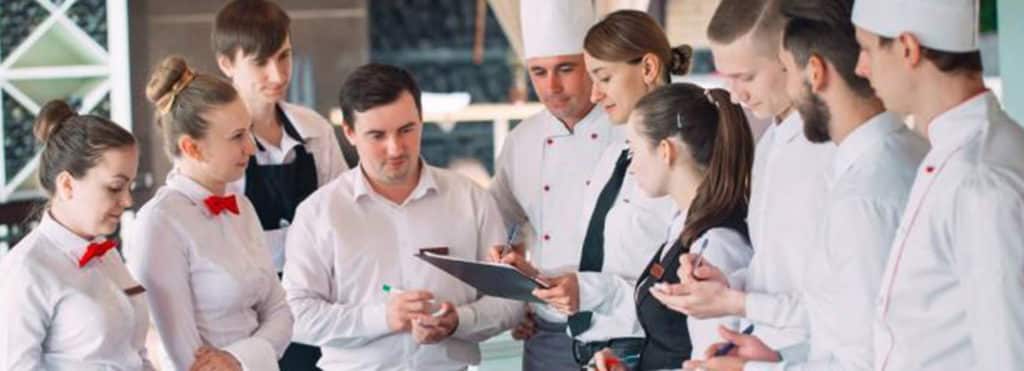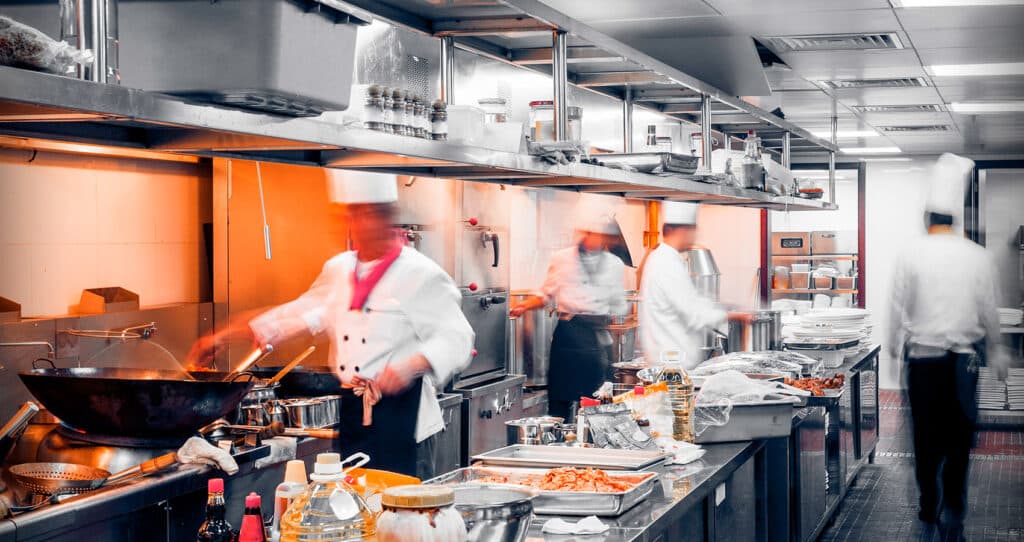This article by Katie Fairchild, Senior Vice President of Marketing at Restaurant365 and featured in FSR.
The labor shortage is motivating an increasing number of employers to shift from educational-based hiring to skills-based hiring. In fact, IBM announced in 2021 it is no longer requiring a bachelor’s degree for 50% of its U.S. job postings, and will continue to rethink degree requirements in the future.
Companies are pivoting in the way they evaluate applicants. It’s no longer just about a degree, it’s about the skills they have to perform the job. They are looking for candidates who have real experience and can prove that they are quick thinkers, strong communicators, and team players who can multitask under pressure.
These skills cannot be acquired in the classroom. Employers are less concerned about how or where applicants gained their soft skills, but instead focusing on if they possess them.
Even those who waited tables over summer break to earn extra cash for their first car gained more than just a paycheck. They developed critical skills that can easily transfer into other fields. When it comes to building a resume, applicants should not to overlook the soft skills learned from hospitality experiences. These are valuable skills nearly every career will need, no matter the field.
A restaurant veteran typically has these highly sought-after skills:
Customer Service
Restauranteurs want employees who understand the direct link between satisfied customers and profitability. Being a server is like being an independent contractor. The restaurant provides the food and the building, but it’s the staff members selling the products and experience. When efforts directly affect income, employees quickly learn to go above and beyond to please each customer.
Teamwork
Every boss strives for employees who will support their team members to reach a common goal. Restaurant workers rely heavily on each other, but teamwork is not something that can be enforced by a manager. The employees must realize the value in working as a team to create the best possible experience for the guests.
Professionalism
Restaurant workers are always facing diverse personalities and need to adapt and cater to guests with professionalism and kindness. Employees deal with every type of personality, and it takes a certain amount of diplomacy to humbly accept “the customer is always right” with a smile.
Communication
At a restaurant, employees are customer facing day-in and day-out, making communication a key skill to possess. They need to be able to focus on what a customer is saying despite the noise and commotion happening all around. They need to make sure the customer feels heard without becoming impatient while also ensuring the correct order reaches the chefs. Employees also need to be able to communicate clearly with teammates and managers so they can clearly explain situations and ask for help if necessary.
Conflict Resolution
Circumstances can change quickly in a restaurant, so employees need to think fast and resolve any conflicts that may arise. The expected slow Tuesday lunch shift can quickly fall apart if a coworker calls out sick, a convention is in town, or you run out of a staple ingredient. When things start to fall apart, it is important for the server to control the situation before it gets out of hand.
Time Management
Time management is essential for restaurant workers. They must prioritize every task in order to greet and take the drink order of each guest as soon as they sit down at Table 10, get Table nine’s out while it’s hot, deliver the check to Table eight, and clear Table seven seemingly all at the same time. They have to think before they move, creating a mental map of how to perform all of the functions in the least amount of time.
Ability to Multitask
Time management and multitasking go hand-in-hand, making it important for employees to balance several tasks at one time without losing focus. Strong servers treat every table as if it were their only table. The problem is servers often have eight to 10 tables vying for their attention at the same time. Servers have to perform multiple tasks for multiple tables simultaneously while maintaining full composure.
Works Well Under Pressure
Working in a restaurant is not for the faint of heart, and employees are often facing high-stress situations. The term “in the weeds,” is well-known in the restaurant industry to describe situations when an employee is overwhelmed and falling behind. Restaurant veterans understand that the only way out of the weeds is to break up the tasks before them into manageable pieces and move forward without cracking under the pressure.
Handling Finances
Workers should also understand the value of money and be responsible when handling it. Servers are expected to operate the Point of sale (POS) cash register and handle currency and credit transactions quickly and accurately, often even performing math in their head to make change. They also rely on tips as income and must learn to live on strict budgets, knowing the ebbs and flows of cash can be irregular.
As companies shift away from degree-based hiring, applicants should adapt and focus resumes and interviews away from listing past employers and positions. Instead, applicants should focus on the learned transferable skills from hospitality experiences. The service industry is a fun, fast-paced job, and workers will learn impressive skills that can translate into almost any role in a variety of fields.



